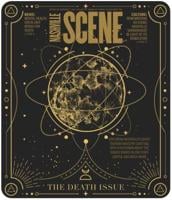Robert C. O'Brien's post-apocalyptic 1974 novel Z for Zachariah is a coming-of-age story, following a teenager named Ann as she nurses a radiation-sickened scientist named Loomis back to health, while wondering if he could be the Adam to her Eve. Later, the book becomes a cat-and-mouse thriller, driven by Loomis' erratic, threatening behavior; and throughout it's an end-times how-to, showing how the last man and woman on earth rebuild after a nuclear holocaust. Like O'Brien's Newbury-winning Mrs. Frisby and the Rats of NIMH, Z for Zachariah is preoccupied with process, revealing its themes through the characters' careful planning and hard physical labor. And while director Craig Zobel and screenwriter Nissan Modi's Z for Zachariah film adaptation takes liberties with the source material, at its best it, too, is ostensibly a doomsday procedural.
Margot Robbie plays Ann, who lives alone on her family's farm, in a valley sheltered from fallout. She's sure she's the only remaining living human until she encounters Loomis (Chiwetel Ejiofor), a brilliant man harboring dark secrets. As Loomis recovers from a deathly illness, the two talk about how to improve her farm, and slowly become adjusted to the idea of living as a couple and restarting civilization. Then someone else arrives: Caleb (Chris Pine), a handsome, capable fellow to whom Ann's more attracted.
There's no Caleb in the novel, and Robbie's Ann is older than the one in the book. But the change in the film with the biggest impact is that Ejiofor's Loomis is less menacing and more sympathetic. The love triangle feels shoehorned in, meant to recall socially conscious 1950s/1960s science fiction — in particular Rod Serling's Twilight Zone and Ranald MacDougall's racially charged SF film The World, the Flesh, and the Devil. The new dynamic, with all its subtle provocations and callbacks to the past, skews the story's dynamic so that it becomes more about Loomis than Ann.
Still, as its own entity, Zobel and Modi's Z for Zachariah is appealingly reflective, in the way the best speculative fiction can be. Zobel, whose earlier films include the excellent slice-of-life Great World of Sound and the button-pushing Compliance, has a feel for the rhythms of everyday life, which helps sell the stakes of this story. Much of Z for Zachariah is quiet and contemplative, focusing on the particulars of survival — from building a water-wheel to trying to maintain some level of comfort — along with larger philosophical questions about what it means to live with other people. The deviations from O'Brien's plot don't always work, but the characters do come across as real people, in a believably fallen world, following a carefully planned-out path and trying to avoid a fatal misstep.
Email arts@nashvillescene.com





